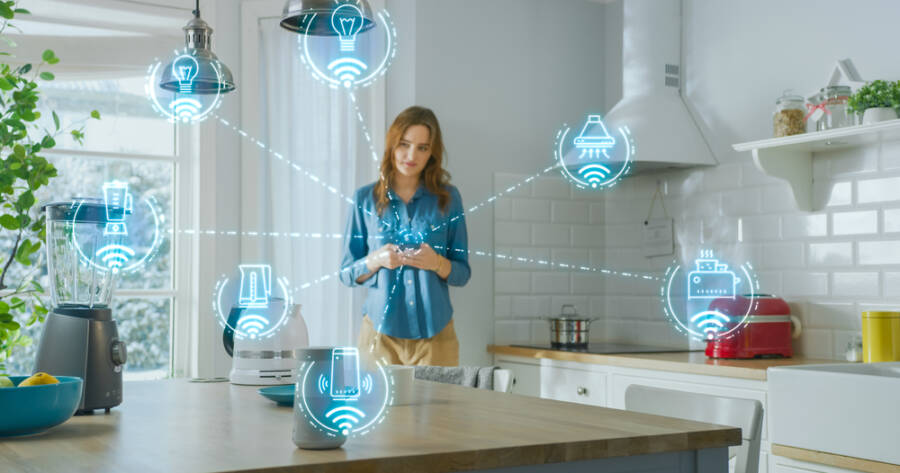Smart home technology offers convenience and innovation by connecting household devices through the internet. From smart thermostats to voice-controlled assistants, this technology can simplify daily life. However, questions about safety and privacy often accompany this digital convenience. Exploring the potential risks and protective measures might help users enjoy smart home technology with greater confidence.
What is Smart Home Technology?
Smart home technology refers to internet-connected devices that allow you to control and monitor various aspects of your home. This includes smart lights, thermostats, security cameras, door locks, and even kitchen appliances. You can control these devices through a smartphone app, voice command, or automation settings that adjust based on your preferences. With these systems, users can optimize their energy usage, improve home security, and streamline household tasks.
However, the connection that makes smart home technology convenient can also open up security risks. When your devices connect to the internet, they may be vulnerable to unauthorized access. Understanding the risks and taking proper security measures is essential to keep your smart home safe.
Security Risks of Smart Home Devices
One of the main concerns with smart home technology is its potential vulnerability to cyberattacks. Since smart devices connect to the internet, they can be targets for hackers who may try to access your data or control your devices. Security cameras and smart door locks, for instance, may expose your private information if not properly secured.
Data privacy is another significant concern. Smart devices often collect personal information about users to improve functionality. For instance, a smart thermostat may gather data on your heating preferences, or a virtual assistant might record voice commands. If this information falls into the wrong hands, it can lead to privacy issues. Companies behind these devices may also collect data to improve their services, raising questions about how this data is stored and used.
How to Secure Your Smart Home Technology
While there are security risks, taking a few proactive steps can help protect your smart home. First, setting strong passwords for each device is essential. Avoid using common passwords and consider changing them regularly to reduce the risk of unauthorized access.
Second, enabling two-factor authentication (2FA) adds an extra layer of security. Many smart device apps now offer this feature, requiring a second form of verification, such as a code sent to your phone, before you can access your account. This can prevent unauthorized users from accessing your devices, even if they have your password.
Another tip is to keep your device software up to date. Manufacturers regularly release software updates to fix security vulnerabilities, so checking for updates can help protect your smart home. You should also consider setting up a separate network for your smart home devices. By keeping your smart devices on a network different from your main devices, you can limit potential security breaches.
Choosing Safe Smart Home Devices
Not all smart home devices are equally secure, so it’s wise to research before buying. Check if the manufacturer is reputable and has a strong history of releasing timely security updates. Look for brands that are transparent about their data privacy policies and actively work to safeguard user information.
When shopping, consider opting for devices with built-in security features, such as encryption and data anonymization. Some devices also allow you to control data collection settings, helping you limit the amount of information shared. Many well-known smart home brands invest heavily in security, so choosing reliable products may help protect your home.
The Benefits and Potential of Smart Home Security
Despite the risks, smart home technology can make your home more secure than ever. Smart security systems allow you to monitor your home remotely, receiving instant notifications if a security event occurs. With smart locks, you can control access to your home, while security cameras provide a constant watch, deterring potential intruders.
Using smart technology for home security offers unique advantages over traditional systems. The flexibility to monitor your home from anywhere enhances peace of mind. Motion-detecting lights and cameras add an extra layer of security that you can manage remotely. Although some risks are present, the benefits often outweigh them, especially with the right precautions.
Keep Smart Home Technology Safety In Mind
Smart home technology brings convenience, control, and security to everyday life. However, staying vigilant about security is essential to protect your privacy and prevent unauthorized access.
By choosing reputable devices, setting strong passwords, and enabling two-factor authentication, you can enjoy a smart home’s benefits while staying secure. With some mindful precautions, you can make your home both smart and safe.
